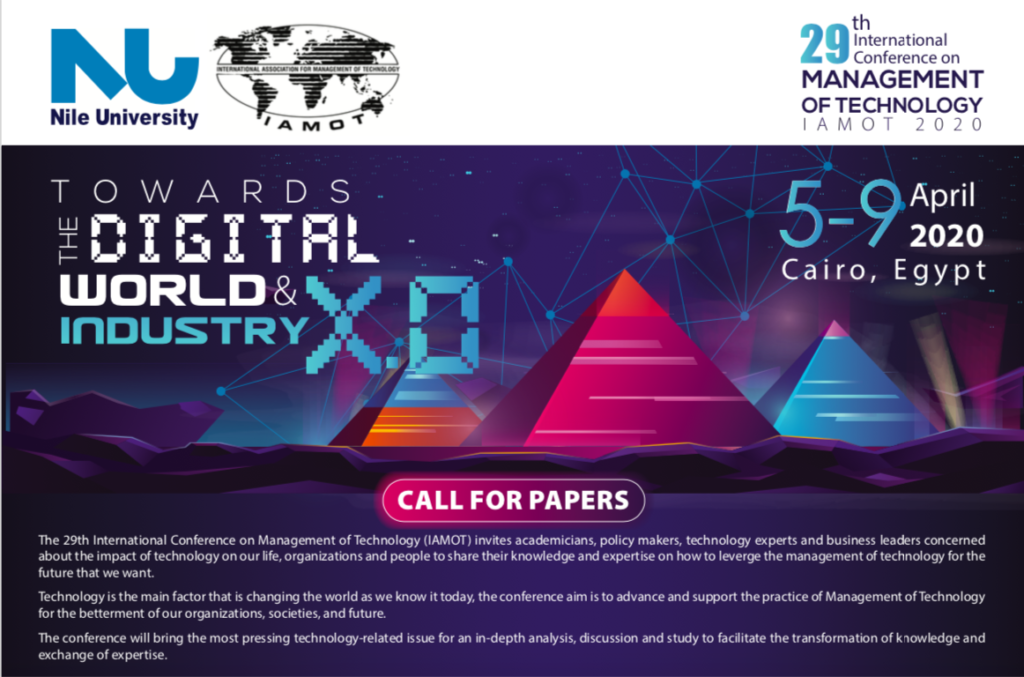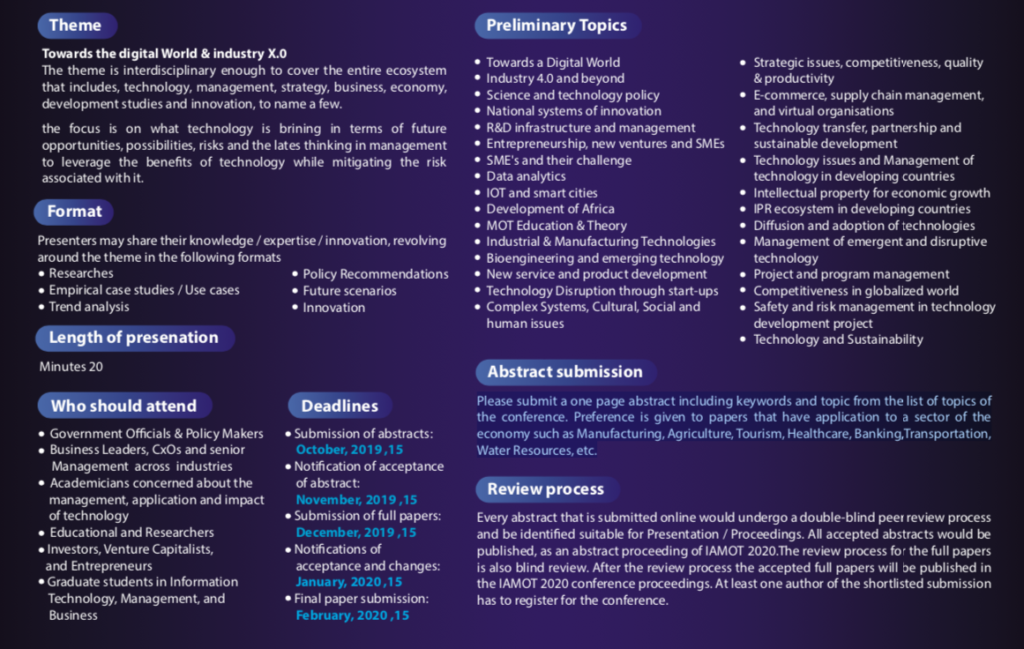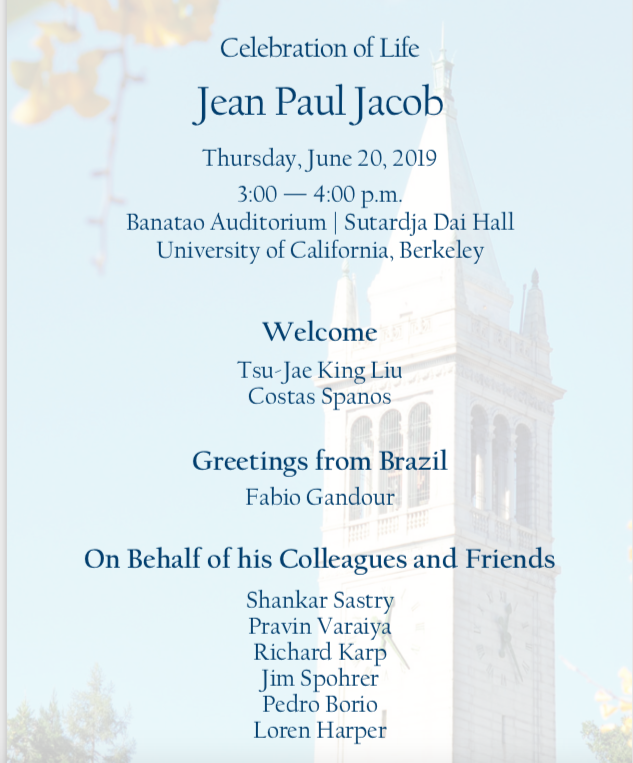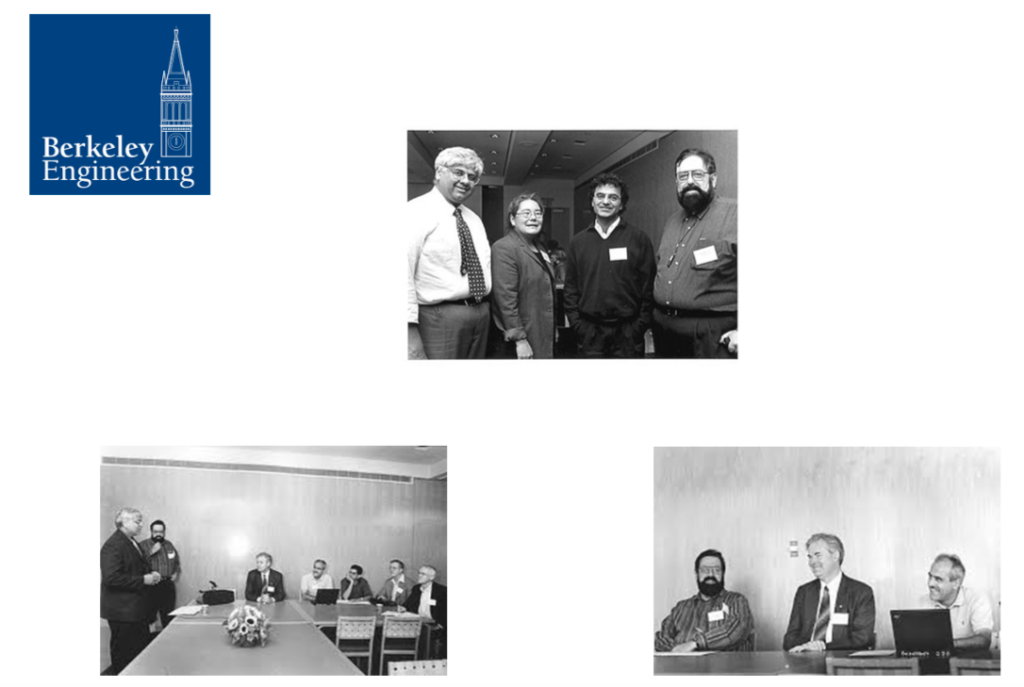AHFE HSSE: The Human-Side of Service Engineering – San Diego, CA UA
Completed papers due: Feb 1, 2020
Conference Sessions: Jul 18-20, 2020
Website: http://ahfe2020.org/board.html#hsse
AHFE umbrella conference: 2000+ attendees
HSSE sub-conference: 75-100 attendees, 50 papers in proceedings, up to 5 best paper awards
Welcome, Agenda, Opening Presentation, Discussants
July 18 – Saturday 08:00-10:00am
Co-Chair C. Leitner, UK christine.leitner@cepanet.eu
Co-Chair J. Spohrer, USA spohrer@us.ibm.com
Co-Chair Emeritus L. Freund, USA louis.freund@sjsu.edu
Co-Chair Emeritus W. Cellary, Poland cellary@kti.ue.poznan.pl
Opening Plenary V Stodden, USA vcs@stodden.net
Possible Discussion with D. Norman, USA
| V Stodden (USA) | ID: 1537 | Toward a computable scholarly record – meta science and engineering reproducibility in the era of AI |
| Video: D Norman (USA) | ID: 447 | Design for 21st Century – towards Service Design – https://jnd.org/ – scroll down to first video |
Research Approaches to Service Innovation: Organizational Perspectives
July 18 – Saturday 10:30-12:30
Co-Chair L. Anderson, USA lca@us.ibm.com
Co-Chair K. Lyons, Canada kelly.lyons@utoronto.ca
Co-Chair Y. Sawantani, Japan yurikosw@gmail.com
| L Anderson (USA) | ID: 84 | Research Approaches to Service Innovation: Organizational Perspectives |
| C Jackson (USA) | ID: 195 | Methodological Reinforcements: Investigating Work through Trace Data and Text |
| K Lyons (Canada) | ID: 413 | Methods for Analyzing Service Innovation in Software Development |
| L Anderson (USA) | ID: 416 | Service Design approaches to drive employee engagement |
| R Alexander (Canada) | ID: 489 | Barriers to Service Innovation using Data Science |
| C Wolf (USA) | ID: 778 | Innovation-as-a-Service: Emergent Lessons from an AI Innovation Management Project |
| Y Sawatani (Japan) | ID: 83 | Effectuation model for large companies |
Applying Service Design Techniques to Healthcare
July 18 – Saturday 13:30-15:30pm
Co-Chair M. Warg, Germany mwa@fh-wedel.de
Co-Chair A Zolnowski, Germany andreas.zolnowski@signal-iduna.de
| M Warg (Germany) | ID: 88 | Architecture and its multifaceted roles in enabling value co-creation in the context of Human-Centered Service Design |
| R Rittweger (Germany)) | ID: 120 | Value co-creation as core of service innovation: impacts of a case study of a fully digitized health insurance company |
| D Miller (USA) | ID: 124 | Improving the user experience for healthcare professionals using a conversational agent to complete business intelligence analysis |
| I Bahrs (Germany) | ID: 135 | Design principles for health service innovations: nudges from the IBM health records service platform |
| M Frosch (Germany) | ID: 161 | A conceptual framework for workforce management: Impacts from Service Science and S-D Logic |
| P Weiss (Germany) | ID: 538 | Microfoundations for Building Systems of Engagement: Enable Actor Engagement Using Service Dominant Ar-chitecture |
| A Zolnowski (USA) | ID: 544 | Analyzing the Role of Artificial Intelligence in the Development of Human Centered Service |
| E DelVacchio (Italy) | ID: 663 | Digital strategy with blockchain in healthcare ecosystem. application of service-dominant architecture (sda) framework |
Emerging Research Innovations in AI, User Experience, and Design Applied to Industry, Business, and Education
July 18 – Saturday 16:00-18:00pm
Co-Chair D. Satterfield, USA debrasatterfield@gmail.com
Co-Chair T. Abel, USA Troy.Abel@unt.edu
Panel 1:
| T Tredway (USA) | ID: 600 | Locked Out: Engaging Design Students in UX and Access Design Processes to Address Homelessness in Los Angeles |
| S Kang (USA) | ID: 570 | Thoughts on Future Design Education |
| SD Seo, (USA) | ID: 288 | A new approach for implementing UX/UI Education focusing on conceptual framework with a development of the story telling for design thinking |
| J Ewald (USA) | ID: 1394 | Hawking the Hawk Tool: Going Beyond Visual Sensory Content in Product Promotions |
| K Mitchell (USA) | ID: 898 | Creating Socially Conscious Designers Through the Lens of Empathy |
Panel 2: Date/Time TBD
| D Satterfield (USA) | ID: 94 | Emerging Research Innovations in AI, User Experience, and Design as they apply to Industry, Business, and Education |
| C White (USA) | ID: 812 | The Human element in the decomposition of a monolithic architecture |
| R Kirk (USA) | ID: 197 | Mitigating Misinformation |
| C Wolf (USA) | ID: 771 | The Work of AI: Sociotechnical Practices around Accessibility in Contemporary Software Engineering |
| S Ganchev (USA) | ID: 609 | Reducing city congestion and pollution by increasing adoption of Carsharing and Micromobility services. |
Challenges and Opportunities designing Smart Service with Artificial Intelligence (AI)
July 19 – Sunday 08:00-10:00am
Chair W. Ganz, Germany Walter.Ganz@iao.fraunhofer.de
| U Karmarkar (USA) | ID: 70 | Managing collaborative teams – leadership, incentives, effort and design |
| W Ganz (Germany) | ID: 526 | Typology-based analysis of artificial intelligence in service companies |
| J Neuhüttler (Germany) | ID: 698 | Artificial Intelligence as driver for Business Model Innovation in Smart Service Systems |
| J Spohrer (USA) | ID: 406 | Perspectives on “Challenges and Opportunities designing Smart Service with Artificial Intelligence (AI)” |
Service Ethics and Trusted AI
July 19 – Sunday 10:30-12:30pm
Co-Chair J. Spohrer, USA spohrer@us.ibm.com
Co-Chair S. Parikh, India drsparikh@a3rmt.com
| A Roy (USA) | ID: 921 | Responsible Innovation |
| C Nebeker (USA) | ID: 960 | Resources to foster ethicality among AI/Digital health stakeholders [Revised title] |
| S Martins (Brazil) | ID: 419 | The use of digital technologies and the transformation of work in a hemodialysis clinic |
| A Zimmermann (Germany) | ID: 772 | Evolution of Smart Service Architectures Through Cognitive Co-Creation |
| P Maglio (USA) | ID: 857 | AI, Ethics, and Service |
AI Designed to Support Healthy Aging
July 19 – Sunday 13:30-15:30pm
Co-Chair H-C.Kim, USA hckim@us.ibm.com
Co-Chair C. Nebeker, USA nebeker@ucsd.edu
| H Kim (USA) | ID: 86 | AI Designed to Support Healthy Aging |
| C Emmenegger (USA) | ID: 761 | Vehicle Automation Will Not Save Our Seniors |
| Y Yamada (Japan) | ID: 876 | Towards predicting future accident risks of older drivers from interaction data with smart speakers |
| C Nebeker (USA) | ID: 881 | Ethical, Regulatory and Social Implications of Digital/AI Health Research to Support Healthy Aging: Considerations for Consent and Return of Results |
| D Jeste (USA) | ID: 930 | AI and Mental Health Factors for Supporting Healthy Aging |
| C Depp, (USA) | ID: 935 | Moving from data to behavior change in healthy aging |
Knowledge Science in Practical Service Situations
July 19 – Sunday 16:00-18:00pm
Co-Chair: Y. Kohda, Japan kohda@jaist.ac.jp
Co-Chair: N. VanHuynh, Japan huynh@jaist.ac.jp
| Y Kohda (Japan) | ID: 119 | Knowledge Science in Practical Service Situations |
| P Rerkjirattikal (Japan) | ID: 169 | Job satisfaction study and nurse rostering optimization framework: a survey of nurses in Thailand |
| TP Nguyen (Japan) | ID: 174 | A Novel Classification Framework Based On Fuzzy Clustering and Bayesian Reasoning for Healthcare Application |
| N Seki (Japan) | ID: 198 | Barriers for service innovations in B2B context: Agile software development adoption and rejection in Japanese organizations |
| R Singhaphandu (Japan) | ID: 303 | Analysis and Feedback of Movement in Manual Assembly Process |
| Ki Tieng (Japan) | ID: 378 | Revisiting Internal Mechanism of HRM Practices in Creating Values for Product Innovation: An Application of Fuzzy Set QCA |
| H Gokon (Japan) | ID: 690 | Towards an application of remote sensing technology for decision making during natural disaster |
| H Endo (Japan) | ID: 746 | Case Study on Multinational Knowledge to IT Servicers in Digital Transformation Era |
Service Robots and Trusted AI: Customer Response to Robots as Front-Line Employees (FLE)
July 19 – TBD
Co-Chair J. Spohrer, USA spohrer@us.ibm.com
Co-Chair M. Rosenbaum, USA MAROSEN@mailbox.sc.edu
Digital Services for Product Innovation
July 20 – Monday 08:00-10:00am
Co-Chair C. Zagel, Germany christian.zagel@hs-coburg.de
Co-Chair F. Bodendorf, Germany freimut.bodendorf@fau.de
| C Zagel (Germany) | ID: 90 | Digital Services for Product Innovation |
| M Fricke (Germany) | ID: 418 | Influencer Analytics for Product Trend Detection |
| H Hasenknopf (Germany) | ID: 768 | Why Do You Listen to this Crap?! Black Metal under the Lens of S-D Logic. |
| N Hajinejad (USA) | ID: 810 | Using the concepts of morphological psychology to inform design for everyday life |
| R Fischer (Germany) | ID: 843 | Requirements for digital services in the context of sustainability derived from the course „consume less, create more“ |
| L Pieper (Germany) | ID: 865 | “Innovation? Yes, I can“–Individually perceived creative self-efficacy as an effect of vividness targeting creativity methods |
| C Zagel (Germany) | ID: 922 | Service Innovations for Cyborgs – Human Augmentation as a Self-Experiment |
| A Niels (Germany) | ID: 1013 | Influence of survey link locational placement on the user rating |
Citizen and Public Sector Empowerment
July 20 – Monday 10:30-12:30pm
Chair C. Leitner, UK christine.leitner@cepanet.eu
| B Schenk (Germany) | ID: 248 | Local Public Services – a balancing act between public service providers and customer expectations |
| C Stiefmueller (UK) | ID: 848 | Open Banking and PSD2: The promise of transforming banking by ’empowering customers’. |
| M Ehret (UK) | ID: 432 | Institutionalization of Service Systems. The Case of Mobile Payments in Nigeria |
| L Walletzký (Czech Republic) | ID: 1345 | Multi-contextual view to Smart City Architecture |
| D Simmons (USA) | ID: 910 | The Impact of Out-of-Class Activities on NAE’s Engineer of 2020 Outcomes for Civil Engineering Undergraduates |
| C Leitner (UK) | ID: 1336 | Empowering European Mobile Youth: Case studies from Austria and Estonia |
| C Leitner (UK) | ID: 1273 | Transforming local government – challenges for public management programme development |
Service Systems and Economic Development
July 20 – TBD
Chair M. Ehret, UK michael.ehret@ntu.ac.uk
Service Science and Knowledge Science in the AI Era
July 20 – Monday 13:30-15:30pm
Co-Chair J. Spohrer, USA spohrer@us.ibm.com
Co-Chair Y. Kohda, Japan kohda@jaist.ac.jp
Co-Chair C. Bassano, Italy cbassano@unisa.it
| J Spohrer (USA) | ID: 77 | Solving AI and Service Science: Technology and Human-Side Perspectives |
| H Hastings (USA) | ID: 433 | Value-dominant logic: An evolving quantum theory of economics. |
| C Bassano (USA) | ID: 444 | Intelligence Augmentation (IA) in complex decision making: the contribution of the VSA concept of Relevance |
| K Kaul (Italy) | ID: 496 | Improving learning effectiveness in workforce intensive companies: An experimental model |
| A Rossmann (Germany) | ID: 818 | The Impact of Chatbots on Customer Service Performance |
| F Polese (Italy) | ID: 1074 | From multidisciplinary to transdisciplinary perspectives on solving AI and Service Science |
| Y Kohda (Japan) | ID: 264 | Can humans learn from AI? A fundamental question in knowledge science in the AI era |
Closing – Awards, Recognition, and Planning
July 20 – Monday 16:00-18:00pm
Co-Chair C. Leitner, UK christine.leitner@cepanet.eu
Co-Chair J. Spohrer, USA spohrer@us.ibm.com
Additional parallel sessions will be added as needed – see topics: http://ahfe2020.org/board.html#hsse
Conference papers published in Springer conference proceedings.
Up to five best paper awards
1st $500
2nd $200
3rd $100
4th $100
5th $100
Thanks to ISSIP.org for sponsoring the best paper awards: http://www.issip.org/recognitions/issip-awardees/
ISSIP sponsored conferences include AHFE HSSE, Naples Forum (HSSE), icServ, as well as HICSS.
Interested?
(1) Abstract due by Dec 16th (ask co-chairs for extension if needed) – just click on this link – https://www.ahfe-cms.org/author#/ChooseTrack
(2) You may need to create a user name and password – which just takes a couple minutes.
(3) When you select the conference track for the abstract – “The Human Side of Service Engineering” is in the list 6th from the bottom:
(4) Then add text for your title and abstract, and have the text for your short bio also handy…
Hope to see you in San Diego next July!!!





